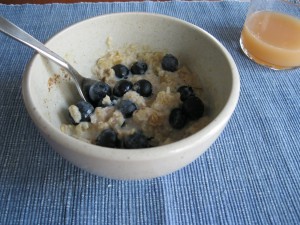News on Niaspan, Cholesterol Drugs and Biomarkers
The Times alerted me, this evening:
Lowering bad cholesterol levels reduces heart attack risks, and researchers have long hoped that raising good cholesterol would help, too. Surprising results from a large government study announced on Thursday suggest that this hope may be misplaced….
Common wisdom has been that such patients should take a statin drug like Lipitor or Zocor to lower bad cholesterol and, in many cases, the vitamin niacin to raise their good cholesterol. But in the trial, niacin provided no benefit over simple statin therapy.
It wasn’t clear to me which was the study, but Bloomberg News explains:
Niaspan failed to prevent heart attacks and may have boosted stroke risk in a U.S.-funded study that calls into question the benefit of raising good cholesterol to combat the leading cause of death.
The National Institutes of Health said today it stopped a 3,414-person study early after the addition of Niaspan to simvastatin, a standard therapy for high cholesterol, was linked to strokes in 1.6 percent of patients, compared with 0.7 percent in the control group. The combination failed to reduce heart attacks, heart-related hospitalizations and the need for procedures to reduce chest pain and restore strong blood flow.
So Niacin, what’s supposed to lower triglycerides and raise HDL – the “good” cholesterol – turns out to be a bust, at least when it’s given in the form of Abbot’s Niaspan.
As to how well cholesterol levels reflect a person’s real risk for heart and other vascular disease, I’ve been skeptical for years.

Still, I have faith in oatmeal, with skim milk and fruit, for breakfast.
—-
These results about niacin are very interesting. I think it demonstrates that one must try not to base clinical decisions on intermediate markers of disease and rather one must look at outcomes. It is true that statins lower LDL cholesterol, for instance, but it is becoming increasingly unclear whether that is the true mechanism of its clinical benefit or whether the statins’ anti-inflammatory properties are the mechanism of clinical benefit.